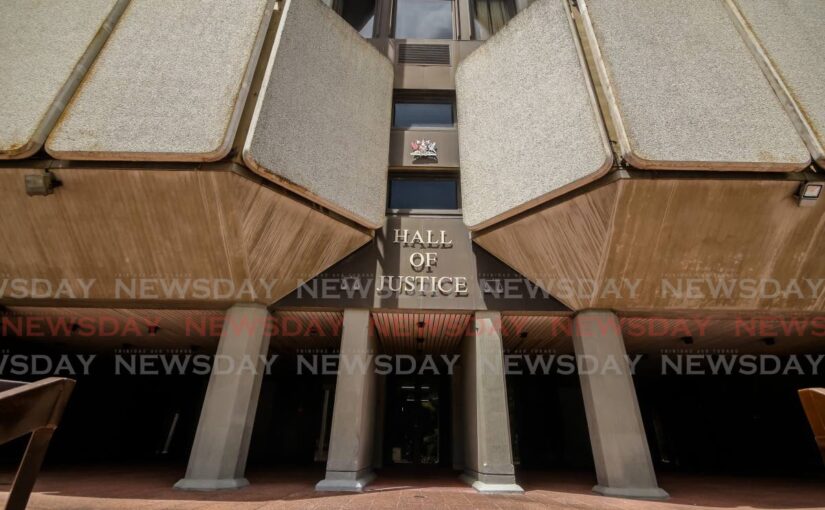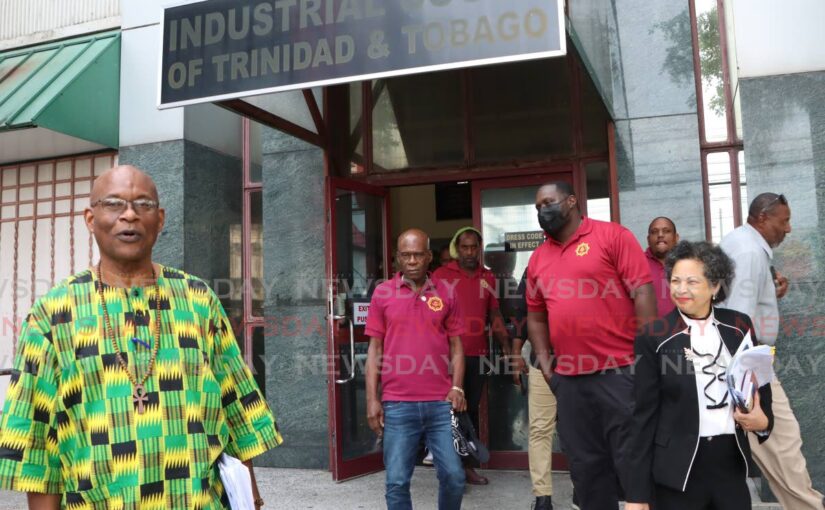Court dismisses claim against Anglican trustees over Couva Shopping Complex project
 13 November 2024
13 November 2024


The Hall of Justice, Port of Spain. - File photo
A HIGH COURT judge has dismissed a claim and counterclaim over alleged unpaid invoices and overpayments in a dispute between a retired project manager and the Trustees of the Anglican Church in the Diocese of Trinidad and Tobago.
The case revolved around a $203,929.76 claim by Kendal Lindsay, of Trincity, for unpaid invoices and a $29,000 counterclaim by the Anglican Church.
In his decision on November 13, Justice Frank Seepersad dismissed both claims, attributing the outcome to a lack of clear contractual terms and communication within the church’s management board.
Seepersad noted that “every effort has to be made to ensure the certainty and clarity of contractual terms,” underscoring the importance of structured agreements.
Lindsay claimed that in late 2017, he entered into an oral agreement with Ernest Williams, then chairman of the management board, to provide his services on two projects at the Couva Shopping Complex.
>
One involved constructing a $4.5 million building for a popular coffee chain, and the other $800,000 in improvement works for the complex’s wastewater treatment plant.
Lindsey claimed that under the agreement, he was required to send his $20,000 monthly invoice to the engineering firm hired for both projects.
He claimed he was paid for several months, but eventually stopped working in January 2020 after he had not received payments for ten months.
Lindsay claimed he had several meetings with the complex’s officials, but was forced to file the lawsuit because no resolution was reached.
In its defence, the trustees’ lawyer Renee Johncilla accepted that Lindsay had done some work, but claimed he failed to perform all the required duties, which eventually had to be fulfilled by another member of the management board for the complex.
It also claimed that Williams entered the agreement with Lindsay without seeking board approval.
It also contended that Lindsay accepted that 60 per cent of his fees were related to the water treatment plant and the remainder was for his work on the new building.
The trustees filed a counterclaim which contended that Lindsay was overpaid $29,000, as he allegedly sought to claim the full fee when work on the building was completed.
In his ruling, Seepersad said Williams circumvented proper procedures relating to authorisation and he was certain “there was a binding and enforceable contractual arrangement” for the projects.
>
However, he said Lindsey failed to prove he continued working on the first project after he fell ill in September 2018, or did work on the water treatment plant in 2019, when the project was suspended for flagged defects.
In deciding the counterclaim, the judge said he accepted evidence from one of the church’s trustees, Dr Stephen Sheppard, that the 60/40 split for the two projects was intended solely for budgeting, not as a basis for remuneration.
He noted that this apportionment had never been formally communicated to Lindsey before he started work, so applying the split retroactively would be unfair and unreasonable.
“It is evident that the defendant allowed or enabled Mr Williams to enter into a very unstructured contract with the claimant; the ‘I’s’ were not dotted and the ‘T’s’ were not crossed.
“This type of arrangement is undesirable and every effort has to be made to ensure the certainty and clarity of contractual terms.” Additionally, the judge made no order as to costs leaving both parties responsible for their respective legal expenses.
Lindsay was represented by Matthew Mc Meo and Marielle Cooper-Leach. Renee Johncilla represented the church.




